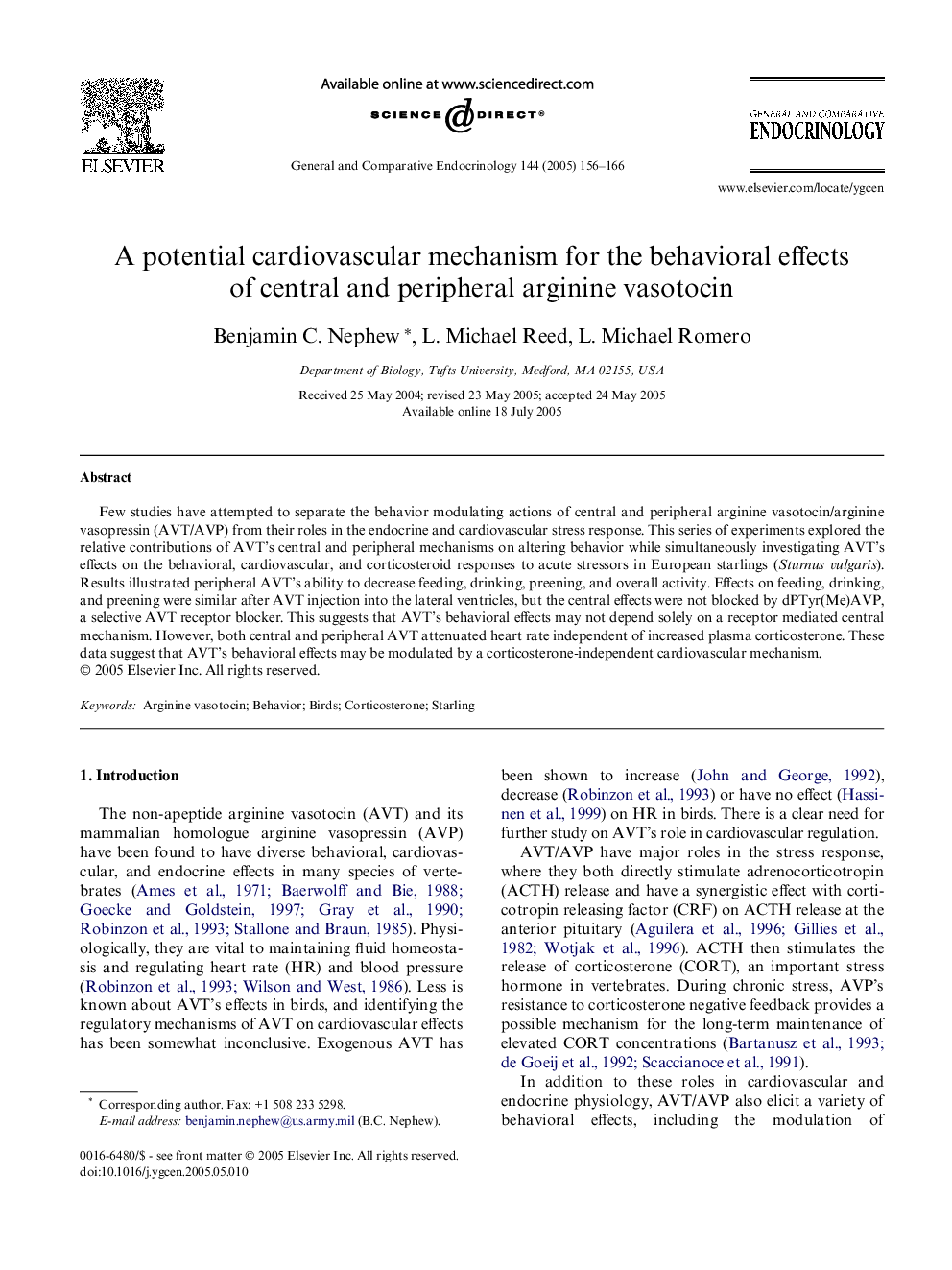| Article ID | Journal | Published Year | Pages | File Type |
|---|---|---|---|---|
| 9113063 | General and Comparative Endocrinology | 2005 | 11 Pages |
Abstract
Few studies have attempted to separate the behavior modulating actions of central and peripheral arginine vasotocin/arginine vasopressin (AVT/AVP) from their roles in the endocrine and cardiovascular stress response. This series of experiments explored the relative contributions of AVT's central and peripheral mechanisms on altering behavior while simultaneously investigating AVT's effects on the behavioral, cardiovascular, and corticosteroid responses to acute stressors in European starlings (Sturnus vulgaris). Results illustrated peripheral AVT's ability to decrease feeding, drinking, preening, and overall activity. Effects on feeding, drinking, and preening were similar after AVT injection into the lateral ventricles, but the central effects were not blocked by dPTyr(Me)AVP, a selective AVT receptor blocker. This suggests that AVT's behavioral effects may not depend solely on a receptor mediated central mechanism. However, both central and peripheral AVT attenuated heart rate independent of increased plasma corticosterone. These data suggest that AVT's behavioral effects may be modulated by a corticosterone-independent cardiovascular mechanism.
Related Topics
Life Sciences
Biochemistry, Genetics and Molecular Biology
Endocrinology
Authors
Benjamin C. Nephew, L. Michael Reed, L. Michael Romero,
